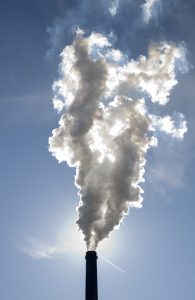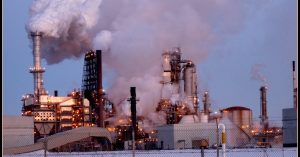Under the Trump administration, the Environmental Protection Agency continues its efforts to strip protections for the environment and public health and safety.

At the end of March, the Environmental Protection Agency (EPA) issued a policy titled “COVID-19 Implications for EPA’s Enforcement and Compliance Assurance Program.” At its core, this new policy allows facilities to forgo monitoring of emissions and regular testing of equipment vital to worker and public safety. There are a plethora of activities that may be suspended as a result.
Without the need to regularly test equipment and storage tanks, it may be impossible to detect catastrophic events like explosions or major leaks before they happen. Facilities and power plants may also suspend emissions monitoring and stack tests. A lack of this kind of data paves the way for more air pollution and the risk of toxic chemicals such as benzene in neighboring communities. The greater risk of catastrophic events and toxic emissions could place pressure on an overburdened health system during a pandemic.
The new policy would allow the EPA to suspend enforcement against certain violations or risks created by a facility. Enforcement or penalties might not be pursued if a facility exceeds existing limitations on emissions to air or discharge to water. Perhaps most reckless of all, the EPA might not pursue enforcement or penalties even if a facility’s operations “create an acute risk or an imminent threat to human health and the environment.”
The mission of the Environmental Protection Agency is simple: to protect human health and the environment. This policy is an affront to that mission.
There is no question that the United States and the world is in the midst of a health crisis like no other. Protecting public health and the environment is a priority for many of us during this uncertain time, and that is why Prairie Rivers Network is joining a group of organizations to urge the EPA to reverse this action. You can read the letter here.
Implications for Frontline Communities
PRN opposes any effort to make it easier for industry to pollute and maneuver around important safeguards for public health and the environment. We also recognize that the communities closest to and most affected by industrial pollution are disproportionately low-income and black and brown communities. These disparities have become even more evident during the current public health crisis. Although black residents make up 29% of the population in Chicago, they accounted for 70% of COVID-19 deaths in early April.

In this case, the EPA’s new policy assures that an even greater health burden will be placed on communities that already experience elevated levels of pollutants and higher risks of cardiovascular and respiratory illnesses.
Implementing these shortsighted changes during a pandemic is dangerous and shameful. People with underlying health conditions are at high risk of severe complications from COVID-19, and now more than ever, the EPA should ensure that proper monitoring and safeguards are in place to protect human health and the environment.
The EPA must fully rescind this policy.







